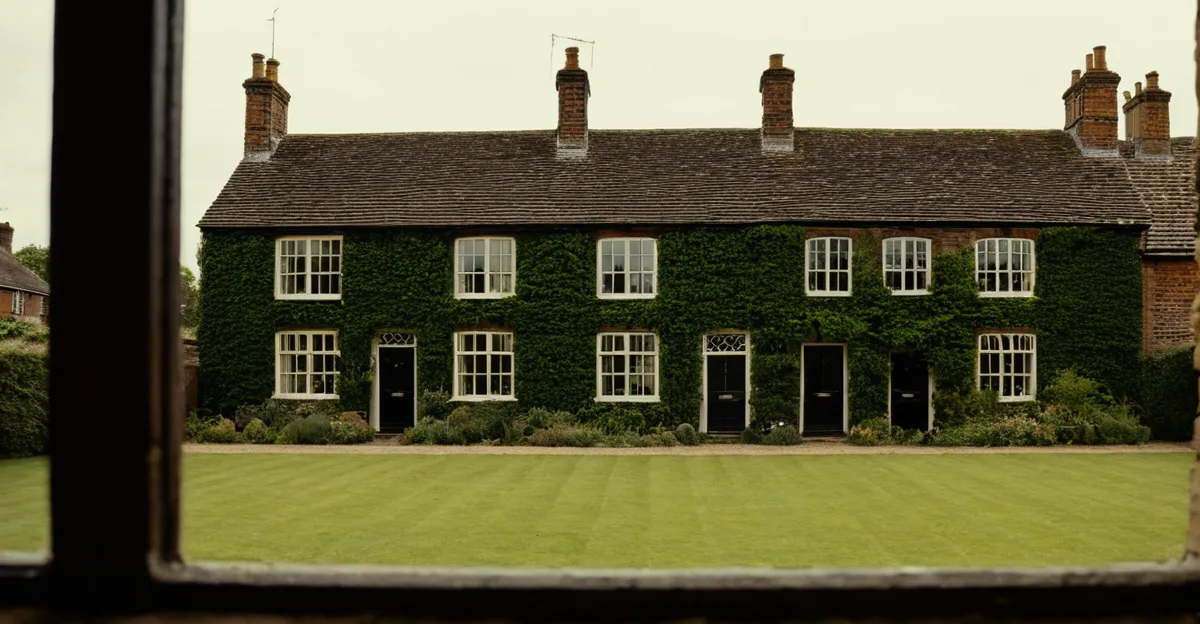Practical Methods for Finding Historical Rental Properties in the UK
When discovering historical rental properties in the UK, leveraging specialised property search websites is essential. These platforms often provide filters tailored to historic property search, allowing users to pinpoint listings that match heritage criteria. Many include detailed descriptions highlighting architectural significance and preservation status, crucial for discerning renters.
Consulting heritage organisations and registers also plays a pivotal role. Bodies such as Historic England maintain comprehensive databases of UK heritage rentals, offering authenticated listings that ensure properties meet official historical standards. These registers provide valuable context about the property’s history and any restrictions related to conservation.
Also to discover : How Can Tourists Maximize Their Stay Through UK Rental Options?
Engaging with local estate agents experienced in heritage property is another effective strategy. Such professionals understand the nuances of leasing historic homes, including compliance with preservation regulations and potential renovation considerations. This expertise can simplify the search and negotiation process, ensuring a smoother rental experience.
By combining these methods—web-based searches, official heritage registers, and expert local agents—renters can efficiently uncover authentic historical rentals and make informed decisions with confidence.
Also read : How Can Tourists Best Experience Local Culture Through Rental Stays in the UK?
Key Online Platforms and Resources
Finding heritage property websites UK is vital for anyone interested in historic rental listings. These platforms offer detailed information about unique properties, often steeped in cultural significance. One of the most comprehensive tools available is the national heritage registers. These registers list properties officially recognized for their historical or architectural value, ensuring authenticity and compliance with preservation standards.
National historic property databases serve as reliable starting points. They catalog buildings according to their heritage status and provide specifics on location, architectural details, and any restrictions on modifications. For instance, these databases can quickly help identify properties suitable for rental or purchase, backed by verified historic credentials.
In addition to official registers, dedicated heritage and historic property websites focus exclusively on such listings, showcasing diverse options from rustic cottages to stately manors. They frequently update their portfolios, making it easier to find current historic rental listings aligned with preservation principles.
Even general rental platforms often feature notable listings under the heritage category, allowing users to filter searches based on age and historic significance. This mix of heritage property websites UK, national registers, and rental platforms equips seekers with a broad spectrum of options, catering to various tastes and budgets within the heritage property market.
Working with Heritage and Local Estate Agents
When searching for rental properties steeped in history, partnering with heritage-focused estate agents in the UK is essential. These agents have specialized experience with older buildings, ensuring you understand preservation requirements and the unique character of historic homes. Their expertise often extends beyond sales to managing rental properties sensitively.
Local estate agents bring intimate knowledge of their community’s historical areas and regulations affecting heritage rentals. This insight simplifies navigating planning permissions or conservation area rules that preservationists must respect. Their connections to local councils or heritage bodies can smooth the rental process, avoiding pitfalls that less informed agents might overlook.
Networking plays a pivotal role in uncovering exclusive rental opportunities tied to heritage properties. Engaging with rental property specialists or attending community events highlights hidden gems not widely advertised. Establishing relationships with specialist agents increases your access to unique dwellings rich in history, often unavailable through general UK property agents.
In summary, combining the expertise of heritage-focused estate agents with local insights and proactive networking yields the best results when seeking historic rental properties. This approach respects the delicate balance between preservation and modern living needs.
Understanding Legal, Preservation, and Tenancy Considerations
Navigating legal requirements for historic rentals UK demands awareness of listed building regulations that affect both owners and tenants. A property with listed building status carries strict guidelines on alterations, repairs, and maintenance. Tenants must understand that any changes, even minor ones, often require consent from local authorities. Failure to comply can lead to legal consequences.
Preservation responsibilities are pivotal in historic property tenancy. Renters are expected to uphold the property’s character and integrity, which may limit typical renovation freedoms. This includes using appropriate materials and methods that align with conservation principles. These restrictions ensure the long-term conservation of heritage features under the listed building regulations.
When drafting tenancy agreements for listed properties, it is essential to include specific clauses about maintenance obligations and alteration permissions. Insurance considerations also differ; standard renters’ insurance might not cover all risks in a historic property. Specialized insurance policies may be necessary to protect heritage assets adequately. Understanding these facets helps tenants meet their legal and preservation duties while enjoying the unique charm of historic rentals.
Tips and Strategies for Successful Searches
Mastering finding historic rentals starts with using precise filters and targeted keywords. Employing search terms like “period features,” “heritage home,” or the property’s architectural era can significantly narrow down listings. This approach prevents sifting through irrelevant options and highlights homes with authentic historic value.
Researching property history goes beyond superficial description. Check archives, local registries, and historical societies to uncover provenance details. Knowing a property’s lineage adds confidence in its authenticity and informs your decision-making.
Verifying heritage credentials is crucial when assessing vintage properties. Look for official listings or conservation area status to ensure the home is genuinely protected for its historical significance. Many heritage properties carry certificates or documentation confirming their status, so requesting these from agents can confirm authenticity.
In sum, effective property search tips tailored to heritage rentals focus on optimizing filters, digging into history, and validating credentials. These strategies save time while guaranteeing your next rental boasts genuine historic charm and legal protections, making your discovery process both efficient and rewarding.
Real-Life Examples of Historic Rental Properties in the UK
Discovering examples of historic rentals UK reveals fascinating properties that blend heritage with modern living. One notable heritage property, a 17th-century listed cottage in the Cotswolds, offers exposed timber beams and an original stone fireplace. Tenants often praise its romantic, period charm combined with updated amenities. Another example is a Georgian townhouse in Bath, featuring elegant sash windows and an intricate cornice, popular among those who appreciate history and architecture.
Case studies rental from these properties highlight the unique challenges and joys of inhabiting historic spaces. For instance, some tenants value the character and grandeur but note that maintenance can require specialist care, especially for original features. Feedback reflects that living in a heritage property often means balancing preservation with comfort.
These examples of historic rentals UK not only tell stories of bygone eras but also provide practical insights. Those considering such rentals gain a sense of the atmosphere and lifestyle they offer, and the importance of understanding the obligations tied to heritage status, making informed decisions easier and more rewarding.




